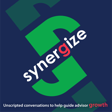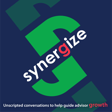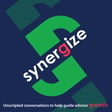
Ep. 17: Tim Whitney: A CEO’s Take on Building a Firm for the Future
Thanks to people like Steve Jobs and Jeff Bezos, we now expect to get what we want, when we want it, and the way we want it. That’s the new bar. And it’s redefining how we thinkabout personalization in the delivery of financial advice and guidance. So, what could changes like these to the industry landscape mean for RIAs seeking to grow?
In this episode, Tim Whitney, CEO of TradeWinds, joins hosts Bill Coppel, Chief Client Growth Officer at TradePMR, and Ryan Neal, Senior Editor at TradePMR, to share a bit about his evolution as a financial professional and some of the insights he’s gained along the way.
Listen as they explore:
• Ways advisors may want to shift their thinking to help them build sustainable businesses
• How the creative use of data may help firms drive value for clients and occupy a unique market position
• Why taking both the evolving needs of clients and the next generation of advisors into account may help advisors grow enterprise value
Subscribe now, and connect with us on social media:
• YouTube
Get the transcript for this episode, with sources, at https://synergizepodcast.com/.
About Tim Whitney, CFP®
Tim is the CEO of TradeWinds, an RIA based in Raleigh-Durham, North Carolina. He began his career with Wachovia Securities in 2003. Before opening TradeWinds, Tim served as a Managing Director and private portfolio manager at Wells Fargo Advisors in Raleigh, NC.
He obtained his CFP® certification in 2011 and received certifications in Family Wealth Advising and Family Business Advising from the FFI Global Education Network, as well as Blockchain and Digital Assets certification from DACFP.
Tradewinds is a client of TradePMR. No compensation was paid to client for participating in this podcast. This podcast reflects this client's experience. Your experience may vary. Wachovia Securities and Wells Fargo are not affiliates of TradePMR.
More About Tim:
LinkedIn: https://www.linkedin.com/in/timwhitney/
Website: https://tradewinds.global/about-us/tim-whitney/
If you want to join the conversation or connect with us, please visit us at
synergizepodcast.com. This content is provided for general information purposes only. The views expressed by non-affiliated guest speakers are their own and do not necessarily reflect the opinion of TradePMR or its affiliates. TradePMR and its affiliates do not endorse any guest speakers or their companies and therefore give no assurances as to the quality of their products and services. This channel is not monitored by TradePMR. TradePMR does not provide investment advice, tax advice or legal advice. TradePMR is a member of FINRA and SIPC. TradePMR, Inc. is registered with the Securities and Exchange Commission {SEC) and the Municipal Securities Rulemaking Board (MSRB). TradePMR provides brokerage and account services to registered investment advisors. Custodial services provided by First Clearing. First Clearing is a trade name used by Wells Fargo Clearing Services, LLC, Member SIPC, a registered broker dealer and non-bank affiliate of Wells Fargo & Company.
Copyright 2025.TradePMR, Inc. For a transcript of this episode with sources, visit


